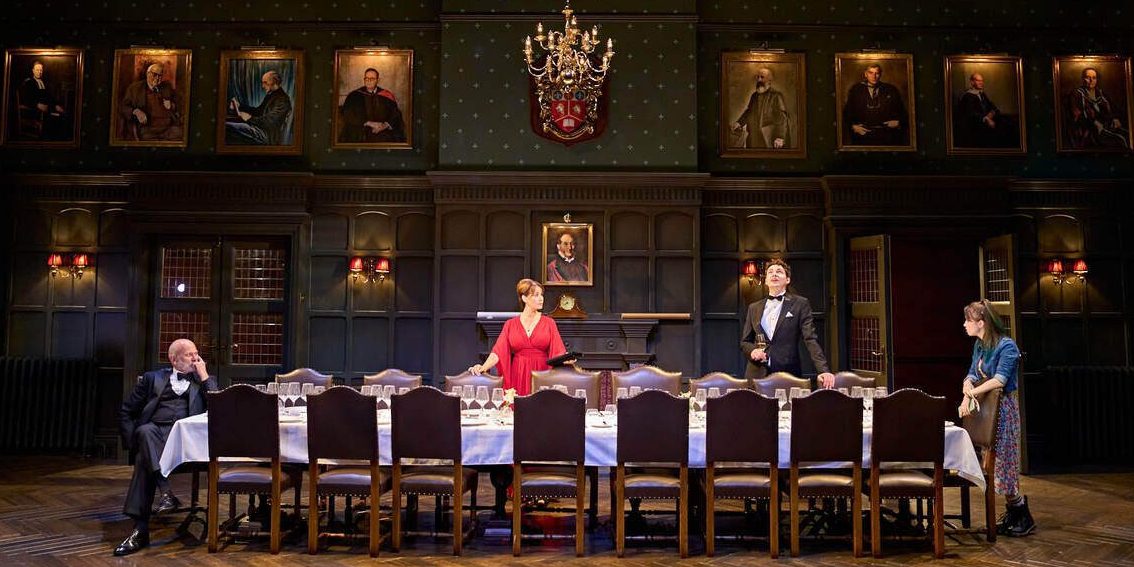Richard Eyre’s much anticipated original play tries incredibly hard to be of the time but sadly lacks the nuance to do so without the aid of sweeping generalisations.
Despite a few irksome moments, overall, The Snail House offers a perfectly acceptable evening of entertainment. At just two hours, the plot cartwheels through emotional extremes, sweeping up the audience in an insubstantial but nevertheless entertaining feuding family plot. Rattling through hot topics such as Brexit and climate change, I am sure every family will relate to at least one of the many arguments depicted on stage. What they will not relate to however, is the paper-thin characterisation and cliched portrayal of the different generations. Particularly, in this case, the younger one.
In is as much as The Snail House is set in a post-pandemic world and discusses topics of political and cultural relevance to us today, it can be considered relatable. It in its handling of such matters, I would argue it is not. In a recent interview for The Times, Richard Eyre is praised for his representation of the younger generation and for writing their views so accurately, despite never having walked in their shoes. Those shoes in this production are Dr. Martens. 18-year-old Sarah (Grace Hogg-Robinson) also has dip-dyed blue hair and when asked what she wants at the dinner party, she responds with ‘0% carbon emissions by 2030’. Following the gifting of a Greta Thunberg poster to her father, Sarah’s fanatical characterisation becomes so dominant there is simply no room for complexity – a problem indicative of one-dimensional writing.
The plot sees us sit in on a dinner party to honour the father of the family, Neil (Vincent Franklin), for his services to children’s health during the Covid-19 pandemic. With a small cast of seven, we watch the family air their dirty laundry in front of their hired catering staff. The catering manager, Florence (Amanda Bright), is an incendiary device, later revealed to be an old acquaintance of the family done wrong by Neil in a flimsy attempt to moralise the father. The dialogue is quick and the wit is sharp, but the finesse is not quite there.
Where this production cannot be faulted however is in the acting of the sensational cast. Their ability to deliver hearty characters, despite having very little depth to work with, is something to be admired. I particularly loved Hugo’s (Patrick Walsh McBride) drunken speech, his sniping yet playful relationship with his sister and his unapologetic defence of beliefs he knows are questionable. The mum (Eva Pope) is defined by composure, making her the most unique character on stage. Wynona (Megan McDonnell), one of the catering assistants, is an odd character – she seems to have fallen off the pages of a musical and landed with a crash into the heart of an upper-class dinner party. At the beginning, her dialogue seems strange and unnatural but, as the play goes on her, her musical interruptions and poorly timed Irish banter become a welcome relief from the constant family bickering.
The Snail House has the makings of a brilliant play, but its originality and poignancy is lost entirely to its reliance on generational stereotypes.

